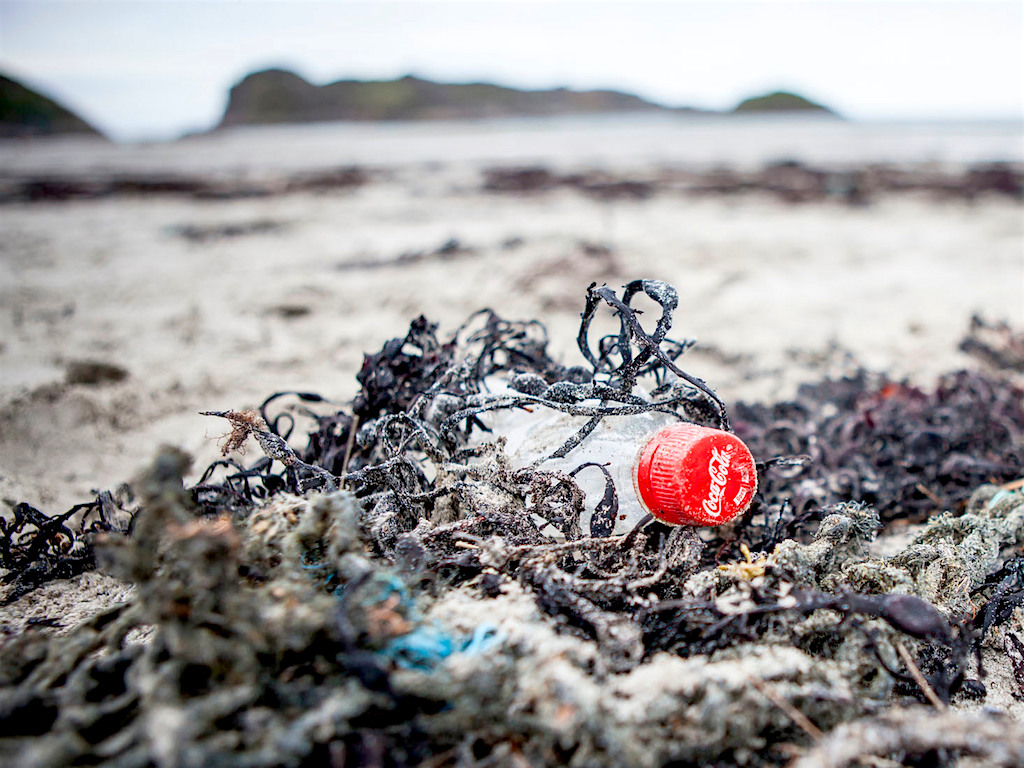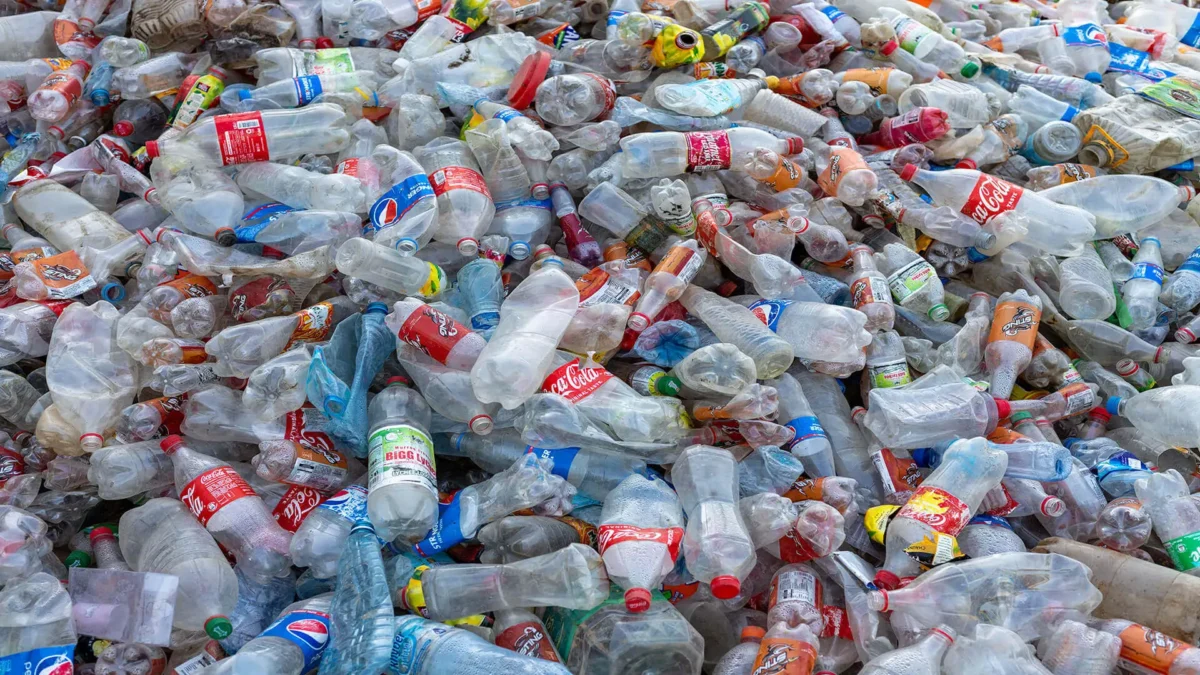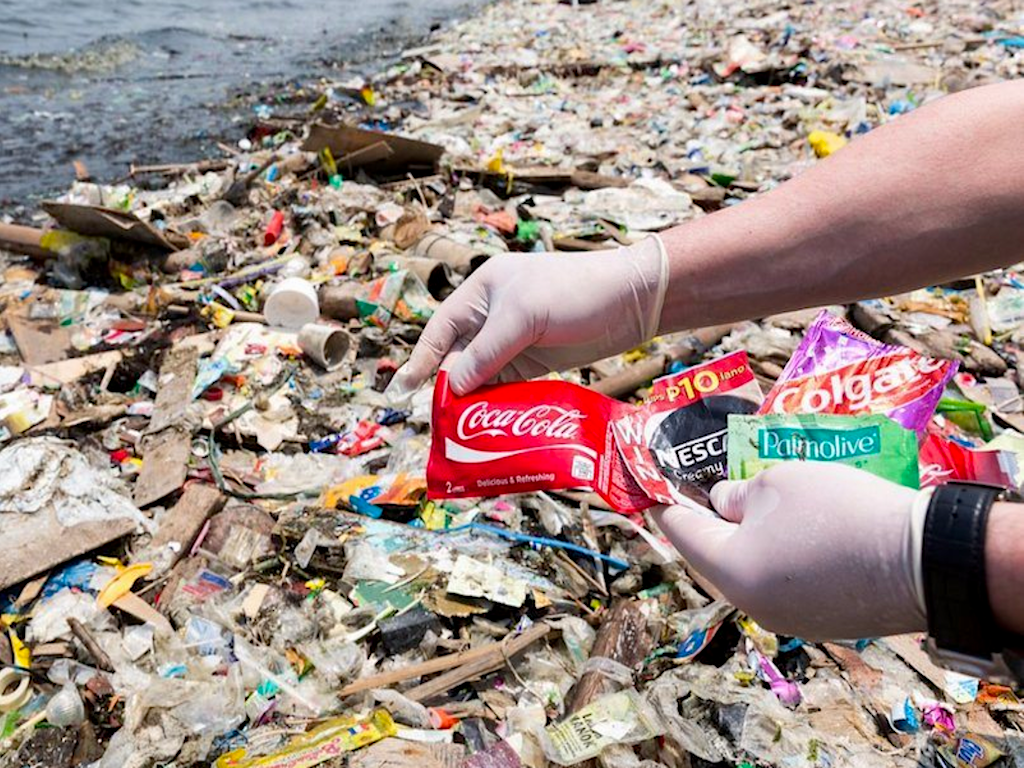Accused of making “zero progress” in cutting down on plastic waste, Coca-Cola, PepsiCo, and Nestlé were named the world’s top plastic polluters for the third consecutive year.
More than 400 million metric tons of plastic are produced annually by businesses; some of this plastic ends up blocking beaches and waterways or degrades into tiny particles called nanoplastics and microplastics that contaminate the air and enter human organs.
A groundbreaking scientific study has shown the startling reality that a small number of multinational corporations are primarily to blame for the world’s plastic trash problem. This report highlights the critical need for waste management and plastic reduction on the part of corporations.
Utilising a group of over 100,000 volunteers, the researchers compiled a database containing more than 1.8 million plastic garbage fragments. The investigation uncovered 28,570 brand names on plastic in 84 countries, including parks, rivers, and beaches.

They discovered that 56 corporations were in charge of more than 50% of the branded plastic, with the top five companies accounting for 24% of the total.
According to the report, thirteen companies accounted for at least 1% of the total amount of branded plastic observed during the audit events.”Food, drink, and tobacco items are produced by all 13 companies. The Coca-Cola Company, the largest company, was in charge of 11%, which was significantly higher than any other company.”
“The world’s top polluting corporations claim to be working hard to solve plastic pollution, but instead they are continuing to pump out harmful single-use plastic packaging,”
Emma Priestland, Break Free From Plastic’s global campaign coordinator.
“Nestlé, PepsiCo, and Coca-Cola should be setting the standard for innovative ways to reinvent their product delivery,” she stated.
Coca-Cola was followed in the top 10 plastic polluters by other food and beverage giants, PepsiCo, Nestlé, Danone, Bakhresa Group, Unilever, Wings, Mayora Indah, Mondelēz, Mars, and Salim Group. Of the plastic goods found, PepsiCo accounted for 5%, while Nestlé and Danone’s products made up 3% individually.
According to a 2017 study, up to 91% of all plastic garbage produced has never been recycled and has instead been burned, dumped in a landfill, or released into the environment.
Single-use sachets, which are used to sell little quantities of goods like ketchup, coffee, and shampoo, were determined to be the most frequently detected sort of item, followed by cigarette butts and plastic bottles, according to this year’s global audit of branded plastic waste.
According to South African Waste Pickers Association national coordinator Simon Mbata, “most plastic we come across cannot be recycled.” It is present everywhere—on our land, in our waste stream. It contaminates our soil when buried. Anything that cannot be recycled ought not to be made.

Coca-Cola refuted the assertion that it was not making any headway and stated that it was collaborating with others to address packaging waste.
According to a spokeswoman, “We have a commitment to collect every bottle globally by 2030 so that the plastic can be recycled into new bottles and none of it ends up as litter or in the oceans.” Eighteen markets worldwide currently sell bottles made entirely of recycled plastic, and this is continually growing”
This discovery, according to CBC, is the result of comprehensive research led by Dalhousie University in Canada and international academic partners and published in Science Advances. In collaboration with the environmental advocacy group Break Free from Plastic, the study conducted volunteer-led audits over a five-year period to map plastic pollution in 84 countries, covering over 1,500 events from 2018 to 2022.
According to Tony Walker, a contributing professor at Dalhousie, some of the biggest companies in the world with worldwide reach are also the biggest polluters. Walker also noted the enormous impact these companies have on patterns of plastic consumption and disposal throughout the world.
These massive corporations ought to face criticism during these times when everyone should be cautious about how they dispose of their waste.



